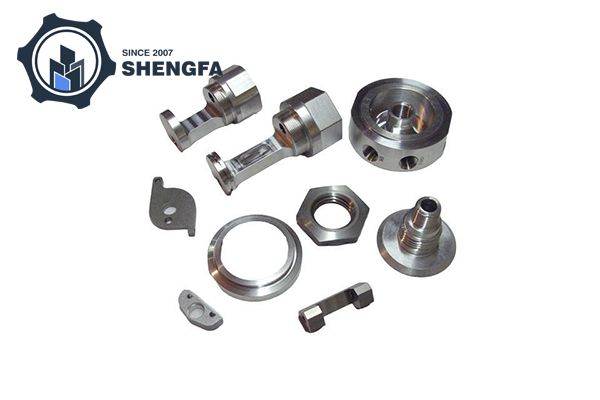What Makes CNC Machining the Backbone of Modern Manufacturing?
2024-12-26
In today’s fast-paced and precision-driven industrial world, CNC machining has emerged as a cornerstone of modern manufacturing. But what sets this technology apart from traditional methods? Why is it indispensable for industries ranging from aerospace to electronics? Let’s explore the transformative power of CNC machining and its pivotal role in shaping the products we use daily.
What Is CNC Machining?
CNC (Computer Numerical Control) machining is a manufacturing process where pre-programmed computer software controls the movement of machinery and tools. It automates precision cutting, drilling, milling, turning, and other operations to produce high-quality parts.
Unlike manual machining, CNC machining delivers unparalleled accuracy, efficiency, and consistency. It is capable of producing intricate and complex designs that would be impossible or extremely time-consuming with traditional methods.
Why Is CNC Machining Essential?
1. Unmatched Precision
CNC machines can achieve tolerances as tight as ±0.001 inches, making them ideal for industries where precision is critical, such as aerospace and medical device manufacturing.
2. Efficiency and Speed
Automated processes significantly reduce production time, enabling faster turnaround and higher productivity.
3. Versatility
CNC machining works with a wide range of materials, including metals (aluminum, steel, titanium), plastics, and composites, catering to diverse industrial needs.
4. Consistency and Scalability
Whether it’s a single prototype or thousands of units, CNC machining ensures consistent quality across all parts.
5. Cost-Effectiveness in the Long Run
While the initial investment in CNC equipment may be high, its precision, efficiency, and reduced waste make it a cost-effective solution for long-term production.
What Are the Applications of CNC Machining?
1. Aerospace and Defense
CNC machining produces high-precision components such as turbine blades, engine parts, and structural elements that meet stringent safety and performance standards.
2. Automotive Industry
From engine components to custom parts, CNC machining is integral to the design and manufacturing of vehicles.
3. Medical Devices
Surgical instruments, implants, and diagnostic tools rely on the precision and reliability of CNC machining.
4. Consumer Electronics
The sleek, durable components in smartphones, laptops, and other gadgets are often crafted using CNC machining.
5. Industrial Machinery
Custom gears, housings, and machine parts are produced efficiently with CNC technology.
How Does CNC Machining Work?
1. Design
A part design is created using CAD (Computer-Aided Design) software, specifying exact dimensions and tolerances.
2. Programming
The CAD file is converted into machine-readable code using CAM (Computer-Aided Manufacturing) software.
3. Machining
The CNC machine executes the program, performing precise operations to shape the material into the desired part.
4. Quality Control
Finished parts are inspected for accuracy and consistency to ensure they meet the required specifications.
What Are the Benefits of CNC Machining?
1. Reduced Errors
Automation minimizes human error, resulting in highly accurate and defect-free parts.
2. Flexibility
CNC machines can quickly switch between different tasks, making them suitable for both prototyping and mass production.
3. Environmentally Friendly
By minimizing material waste, CNC machining promotes sustainable manufacturing practices.
4. Global Accessibility
With advancements in CNC technology, manufacturers worldwide can produce high-quality parts efficiently and economically.
Is CNC Machining the Future of Manufacturing?
The versatility, precision, and efficiency of CNC machining position it as a driving force in the evolution of manufacturing. As technology continues to advance, CNC machining is becoming even more sophisticated, integrating with AI, IoT, and robotics to revolutionize production processes.
Conclusion
CNC machining is not just a manufacturing process—it’s a game-changer. Its ability to produce precise, complex, and consistent parts at scale has made it indispensable in countless industries.



